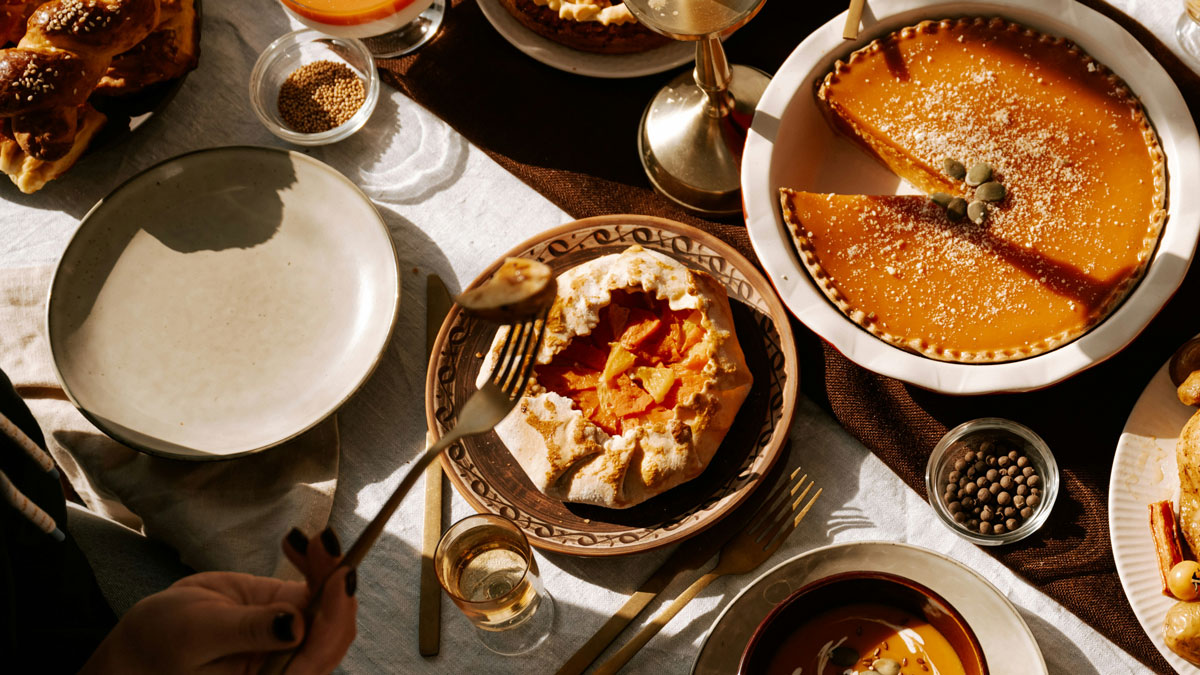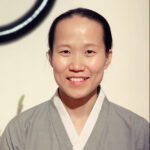Thanksgiving is such a beautiful time of year. After all, who would object to “thanks” and “giving”? And yet, as warmly as this season invites us in, it can also… stretch us. Between family gatherings, cooking, travel, and all the emotional dynamics that come with them, this time of year can feel wonderfully rich and strangely exhausting. Gratitude fills the air — but so do old patterns, old wounds, and old expectations.
There’s a line from Ram Dass that often surfaces in Buddhist circles at this time of year: “If you think you’re enlightened, go spend a week with your family.”
I smile every time I hear it, because it carries such honest truth. It’s easy to feel serene on the meditation cushion, breathing quietly in a room where no one interrupts us. But things can shift quickly when we sit at a dinner table with people who know our entire history — and know exactly how to press our buttons.
“When we remember that each person wants to be happy, carries their own goodness, and suffers in ways we cannot always see, something softens in us.”
So let’s begin by acknowledging this clearly: the holidays are not a break from practice. They are a profound part of practice. Family gatherings are not interruptions on the path — they are the path. They offer chances to observe our habits, deepen our patience, and practice compassion in real time.
This perspective resonates beautifully with a central Won Buddhist teaching often expressed as: “Everywhere a Buddha image; every act a Buddha offering.”
Or in more familiar language: “The Buddha can be found everywhere, and every action can become an offering.” In short: “Buddha is everywhere; every act is an offering.”
This simple phrase carries a spacious reminder: awakening isn’t confined to sacred places or special moments. It can be lived right where we are — even in the midst of holiday chaos.
Seeing Buddha Everywhere
The word Buddha means “the awakened one.” When we say “Buddha is everywhere,” we’re not imagining statues appearing in the living room. We’re training ourselves to recognize the awakened nature — the basic goodness — within every person we meet. Even when it’s covered by habits, stress, or the roles we play in daily life.
An old Korean folktale captures this beautifully.
Long ago, an elderly butcher named Park Sang-gil ran a small meat stall in the market. One day, two gentlemen approached to buy meat.
The first spoke rudely: “Hey, Sang-gil. Give me a pound.”
“Yes, certainly,” the butcher replied, offering him a modest portion.
The second gentleman, though higher in social status, felt uncomfortable speaking disrespectfully to an older man. So he said politely, “Mr. Park, may I have a pound as well?”
“Yes, thank you,” the butcher replied with warmth as he cut a generous portion.
Seeing this, the first man grew angry. “Why is his so big and mine so small?”
Park Sang-gil answered gently, “Sir, your meat was cut by Sang-gil. His was cut by Mr. Park.”
This story carries a timeless truth: how we see others shapes how they respond to us. When the first man saw only a lowly butcher, he awakened arrogance in himself and resistance in the butcher. When the second saw a human being worthy of dignity, he awakened generosity — both in the butcher and in himself.
This isn’t magic — it’s human nature. When we look at someone with respect, we bring out their respectfulness. When we acknowledge their goodness, we create space for them to be good.
So as we sit with family this Thanksgiving, we might ask ourselves:
What am I calling the people around me?
Am I seeing their mistakes, or their Buddha-nature?
Am I focusing on their habits, or their potential?
When we remember that each person wants to be happy, carries their own goodness, and suffers in ways we cannot always see, something softens in us. We speak with more care. We listen with more spaciousness. Our reactions become more skillful. Others feel this shift — and even if they don’t, we feel it within ourselves.
Seeing Buddha everywhere does not mean ignoring flaws. It means meeting people beneath their flaws. Choosing dignity over judgment. And while this isn’t always easy, this is precisely why it is called practice.
Every Action Is an Offering
The second half of the teaching says: “Every act is a Buddha-offering.”
Traditionally, an offering might be incense, fruit, rice, or flowers placed before an altar. But Won Buddhism expands this understanding: it is really about how we treat the people around us — each carrying buddhanature. The true offering is the quality of our heart as we move through the world. The way we speak is an offering. The way we listen is an offering. The way we walk, cook, clean, drive, wait, and breathe — all can become offerings.
In this sense, life itself becomes the altar. People become the living Buddhas before us. And each moment becomes an opportunity to express gratitude. Yet, every offering must be guided by wisdom. Offering doesn’t mean giving people whatever they want. A true offering is what is wholesome, beneficial, and genuinely supportive of awakening.
If a child who has already eaten too much candy asks for more, we don’t offer another handful. If someone struggling with addiction asks for a bottle of whiskey, giving it would only deepen their suffering. If someone caught in a long-term harmful pattern says, “Tell me I’m doing fine,” we don’t offer empty reassurance. Sometimes the most compassionate offering is to say, gently but firmly, “No. It’s time to stop.”
Sometimes the offering is patience. Sometimes it is truth. Sometimes it is silence. Sometimes it is setting a boundary. Sometimes it is refusing a request because it would deepen suffering.
Offering is not about pleasing people. It is about reducing suffering, nurturing goodness, and supporting awakening — in ourselves and in others.
Sometimes the Buddha appears beautifully — as the person who supports us, listens to us, or offers comfort. But sometimes the Buddha arrives in disguise — as the relative who talks too much, the person who interrupts, or the family member who repeats old stories.
Let us remember that difficult people are indeed great teachers. They expose our impatience, our pride, and our hidden triggers. They give us opportunities to practice compassion, humility, and letting go. Their presence becomes a mirror, reflecting both our growth and the places where our practice is still unfolding.
As you enter this Thanksgiving and holiday season — with all its warmth, complexity, and challenge — I invite you to carry this teaching with you:
“Buddha is everywhere; every action is an offering.”

